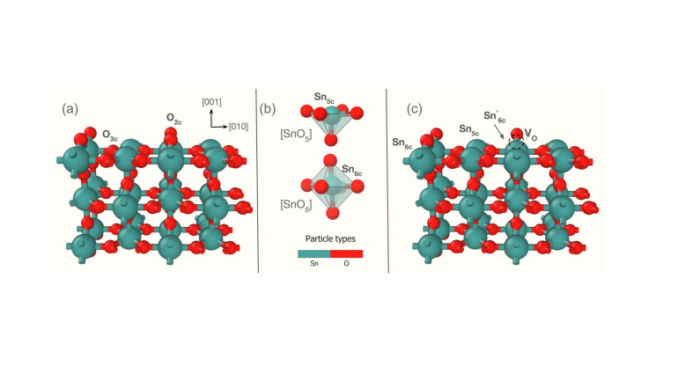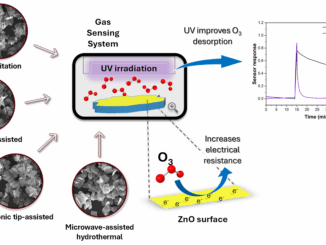
Effective sensing mechanisms of O2 and CO on SnO2 (110) surface: a DFT study
Abstract: The dissociative adsorption of O2 on SnO2 is pivotal for its gas-sensing performance, yet the underlying mechanisms remain open to debate and hamper widespread applications. In this study, we introduce a novel mechanism that advances the understanding of gas adsorption and activation on metal oxide semiconductor surfaces, coupling O2 dissociation and CO oxidation in a unified process that redefines the Mars–van Krevelen mechanism. Detailed DFT simulations demonstrate that the electronic and structural properties of the SnO2 (110) surface trigger the spontaneous stabilization of a neutral polaron upon oxygen vacancy formation, boosting the activation of O2 and directly coupling its dissociation with CO oxidation, resulting in a highly energetically efficient process. Our findings mark a paradigm shift in the understanding of O2-driven gas-sensing technology and showcases how the polaron reduces activation barriers and stabilizes key intermediates, optimizing the catalytic cycle and the sensor activity. This work paves the way for the development of high-performance SnO2-based sensors by leveraging defect engineering and polaron dynamics.
Author(s): Felipe Lipsky, Amanda F. Gouveia, Fabrício R. Sensato, Mónica Oliva, Elson Longo, Miguel A. San-Miguel and Juan Andrés
J. Mater. Chem. A
2025,13, 918-927
DOI https://doi.org/10.1039/D4TA07615J
CDMF
The CDMF, hosted at the Federal University of São Carlos (UFSCar), is one of the Research, Innovation and Dissemination Centers (RIDC) supported by the São Paulo State Research Support Foundation (Fapesp), and also receives investment from the National Council Scientific and Technological Development (CNPq), from the National Institute of Science and Technology of Materials in Nanotechnology (INCTMN).




